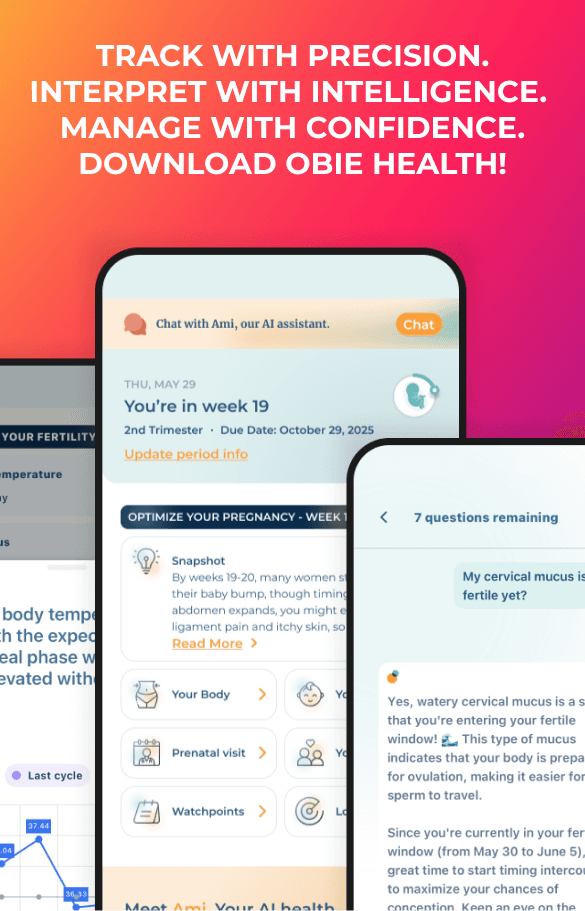Twins: Does the Due Date Change?
Multiples
Obie Editorial Team

Q: I am carrying twins. Should I adjust my due date based on having twins? Without having to adjust LMP? Is the due date with twins 38 weeks instead of 40 weeks? I would like to be able to use the countdown feature based on a 38-week due date and not have it change gestational age.
A: You are correct that with twins you often deliver earlier, and most twins are delivered no later than 38 weeks or 2 weeks before the official due date. However your due date is not based on when they are expected to deliver, but the due date is based on the last menstrual period and when you conceived, the day of fertilization, and that does not change if you are having twins.
Twins deliver on average around 35 weeks and singletons around 40 weeks. Most twins don't deliver after 38 weeks. Even with twins, your pregnancy due date and your weeks' count remain exactly the same. You may be delivering earlier for various reasons, but 38 weeks for both twins and singleton pregnancies is still mathematically and medically the same and the official due date should not be changed based on whether you carry one or two or more fetuses.
There are many other medical circumstances which require an earlier delivery. Twins or scheduled cesareans are not the only reasons. Placenta previa, triplets, placenta accreta, prior uterine surgery are all reasons to medically deliver earlier. But by medical definition, that does not change your due date itself, though it changes the date you are scheduled to deliver. The basic calculation of a due date is 38 weeks after fertilization, and that definition does not change if you are scheduled to deliver earlier.
If you have a cesarean section at 38 weeks for whatever reasons, that's 2 weeks before the 40-week due date, it's still 38 weeks, no matter what the reason is to deliver earlier.
The same applies to triplets. Just because most triplets deliver at 36 weeks does not mean that your due date changes to an earlier date.







